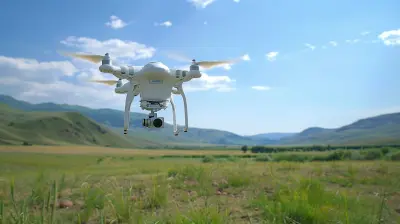The Rise of AI in Home Automation: What You Need to Know
18 May 2025
Technology is evolving at an insane pace, right? One minute we're marveling at smart speakers, and the next, our entire home is being run by artificial intelligence (AI). We’ve come a long way from simple programmable thermostats and basic timers. Now, AI has infiltrated our homes, transforming them into smart environments that can learn, adapt, and even predict our needs. But what exactly does this rise of AI in home automation mean for us? How will it reshape the way we live and interact with our surroundings? Let’s dive into what you need to know.
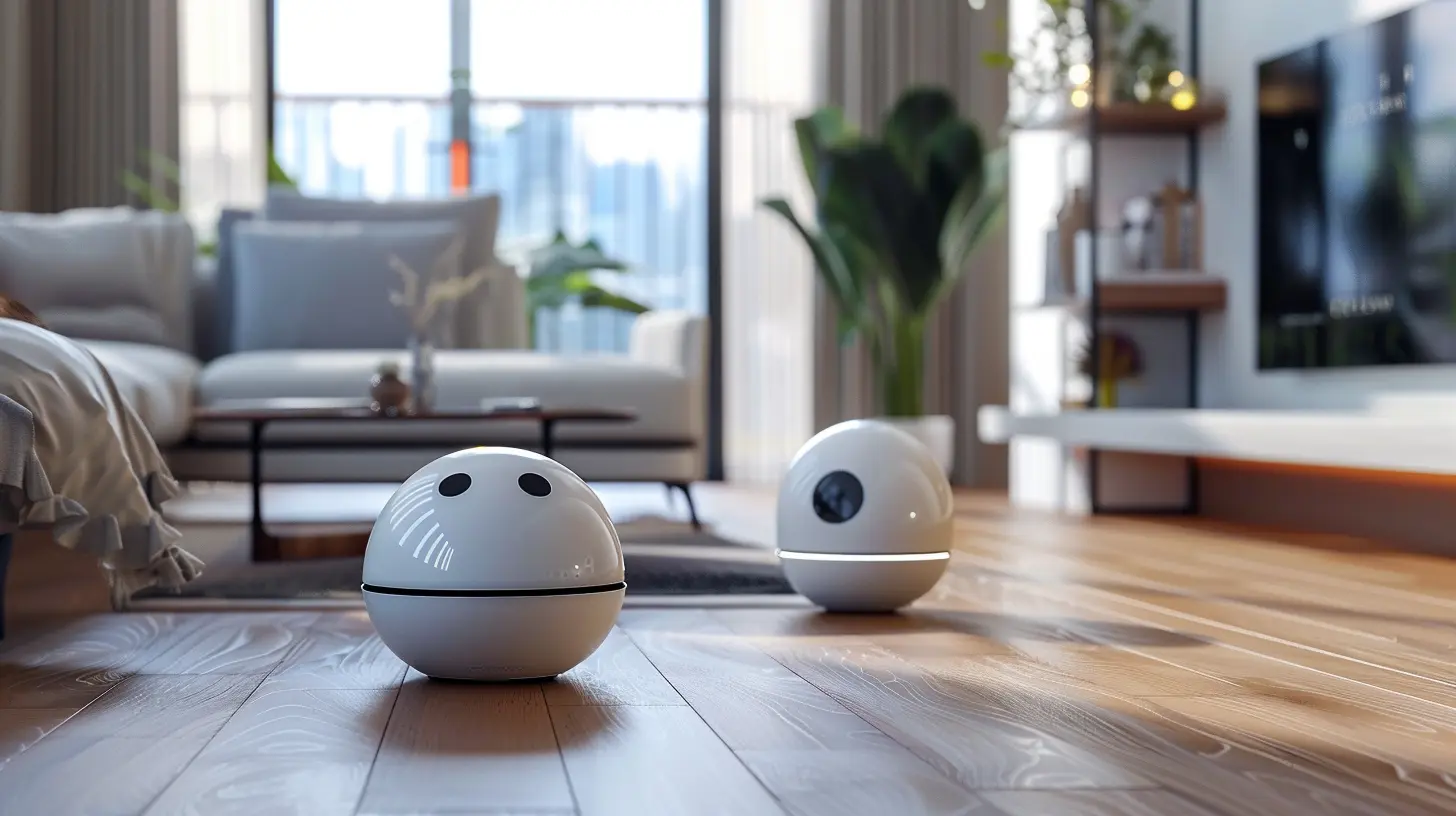
What is AI in Home Automation?
Before we get too far ahead of ourselves, let’s break down what we mean by AI in home automation. Home automation refers to the use of technology to control various functions in your house—like lighting, heating, security systems, and even your appliances. AI takes this a step further by adding intelligence to those systems. We're not just talking about turning the lights on and off at a set time; we're talking about systems that learn your habits, understand your preferences, and even make decisions for you.For instance, an AI-integrated thermostat won’t just follow a schedule; it’ll track when you're home, monitor outside weather conditions, and adjust the temperature accordingly without you lifting a finger. Sounds pretty cool, right? So, whether it’s controlling your lights, managing your home security, or adjusting your thermostat, AI is making home automation more intuitive, efficient, and user-friendly.
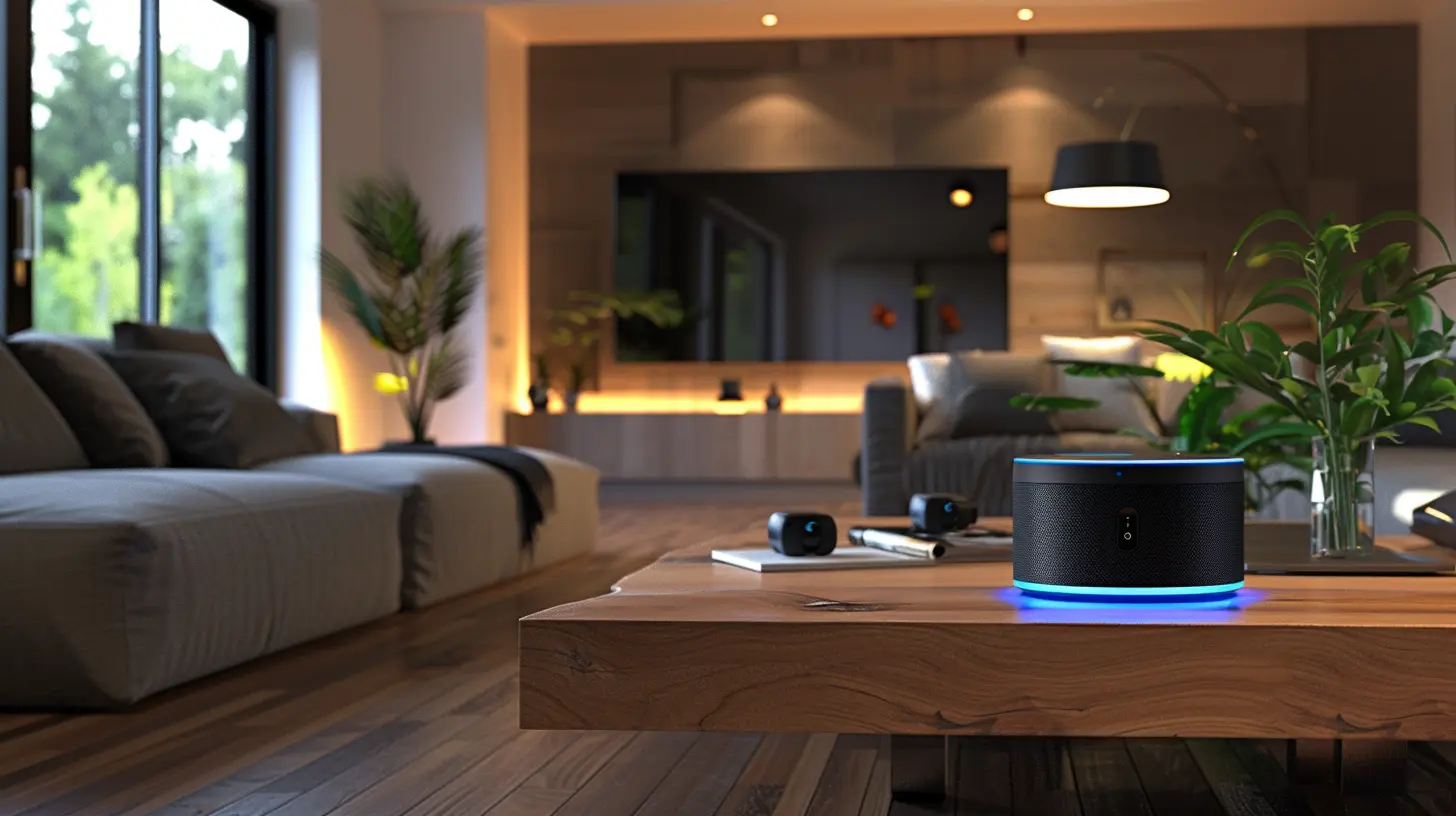
The Growing Popularity of Smart Homes
It’s no secret that smart homes are becoming a huge trend. According to recent studies, the global home automation market is expected to hit over $100 billion in the next few years. And a big chunk of that is being driven by AI technologies.But why are smart homes so popular? Well, it’s simple: convenience. Imagine waking up, and your coffee maker has already brewed your coffee, your blinds have opened to let the sunlight in, and the thermostat has adjusted the temperature to your liking—all without you having to do a single thing. It’s like living in the future, today.
AI-powered home automation systems bring more than just convenience. They also bring energy efficiency, improved security, and even better entertainment experiences. Now, let’s take a closer look at how AI is reshaping different aspects of home automation.
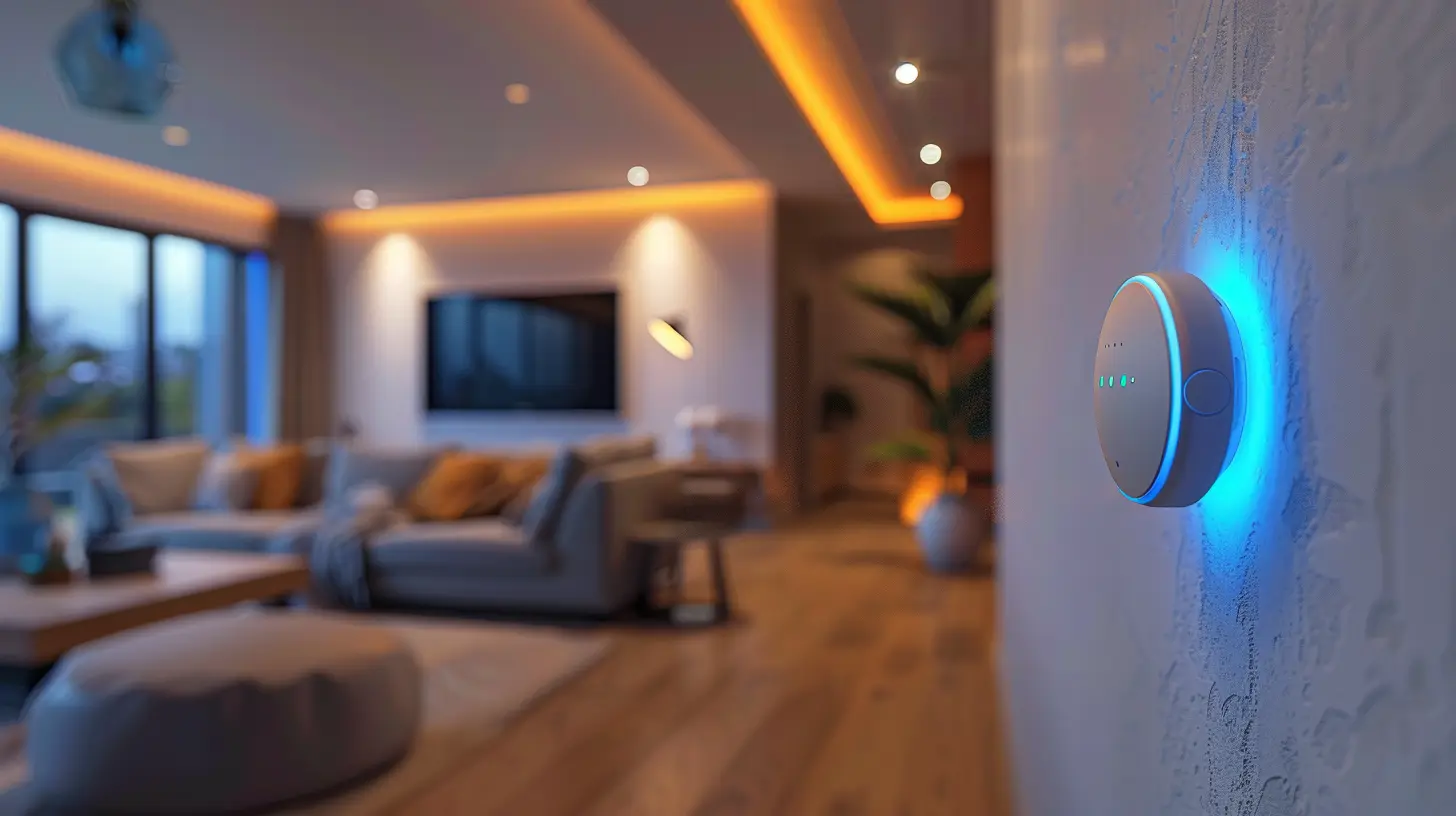
AI in Home Security: More Than Just Cameras
One of the most significant areas where AI is making waves is home security. Traditional security systems might alert you if someone breaks a window or opens a door, but AI-powered security systems go far beyond that.Smart Security Cameras
AI security cameras don’t just record footage; they analyze it. They can distinguish between a harmless squirrel in your yard and an actual intruder. Some systems can even recognize familiar faces, so you won’t get unnecessary alerts when your kids come home from school. And if something suspicious does happen, the system can notify you immediately, perhaps even locking the doors or alerting local authorities automatically. Pretty futuristic, huh?Predictive Security
Some AI security systems are even capable of predictive analysis. They can detect unusual patterns or behaviors around your home and flag them before something bad happens. For example, if someone is loitering around your house for too long, the system might send you an alert, giving you the heads-up before a potential break-in occurs.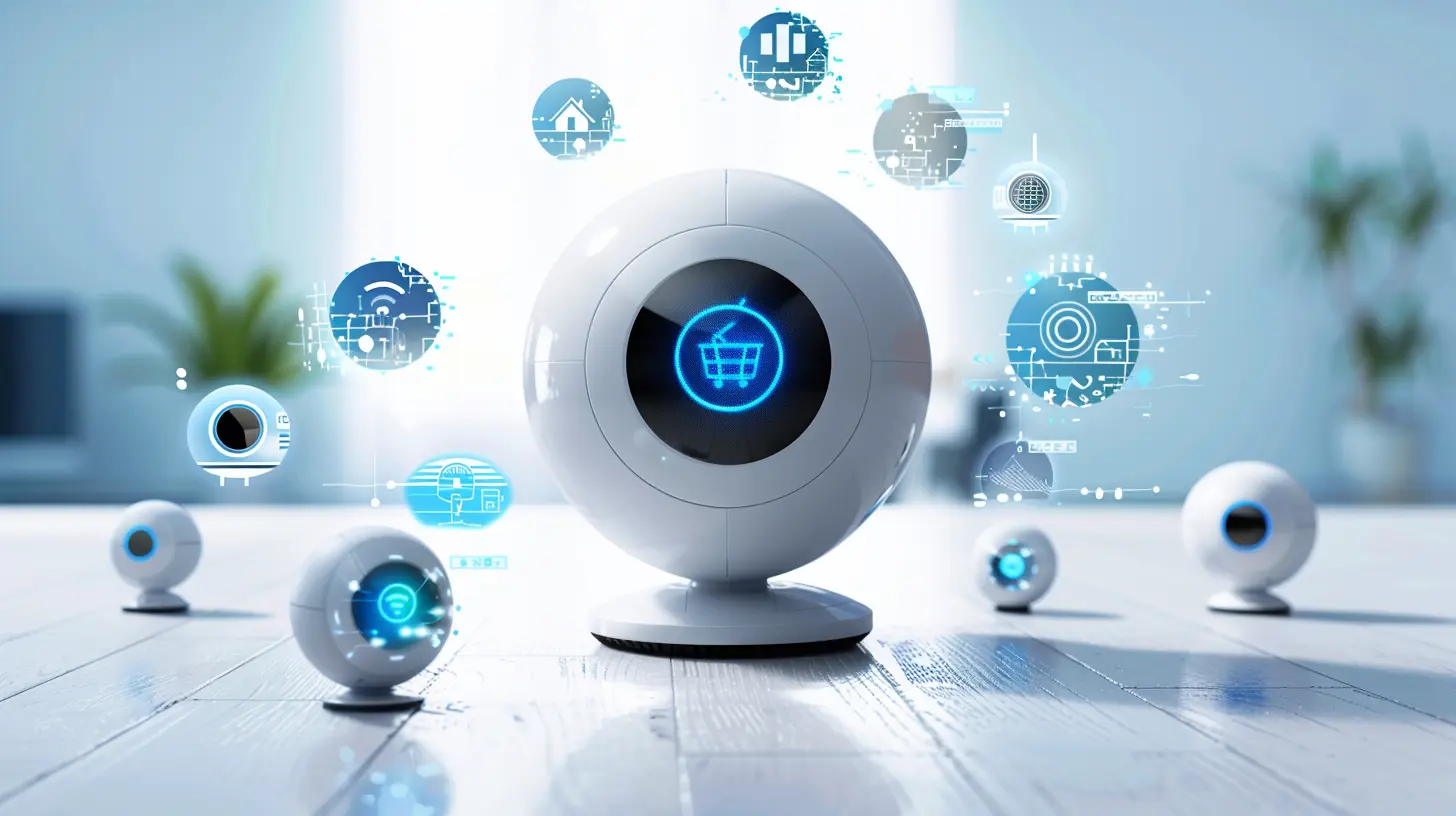
AI in Energy Management: Save Money Without Lifting a Finger
Energy efficiency is another area where AI is making huge strides. In the past, you'd have to manually adjust your thermostat or lights to save energy. But now, AI takes care of that for you, and it’s often smarter than you'd expect.Smart Thermostats
Take smart thermostats, for example. These devices use AI to learn your daily routines. Over time, they’ll adjust the temperature in your home based on when you're there, when you're sleeping, or when you're away. Some even tap into local weather forecasts to make real-time adjustments. The result? You stay comfortable, and your energy bills don’t skyrocket.Smart Lighting Systems
Lighting is another area where AI can help save energy. AI-powered lighting systems can adjust based on the time of day or based on activity in the room. For example, if you’re watching a movie, the lights might automatically dim to create the perfect ambiance. Or if you leave a room, the lights will turn off on their own. It’s like your house is paying attention to what you’re doing.AI and Voice Assistants: Your New Personal Butler
You’ve probably heard of voice assistants like Amazon Alexa, Google Assistant, or Apple’s Siri. These AI-powered devices are becoming the centerpiece of smart homes. But they’re not just for playing music or setting timers anymore. They’re becoming the control hub for your entire home.Seamless Integration
AI voice assistants can now control almost every device in your home. Want to turn off the lights? Just ask. Need to lock the doors? A quick voice command will do. You can even control your thermostat, security cameras, and appliances, all with just your voice. It’s like having a digital butler at your beck and call.Personalized Experiences
These voice assistants are getting smarter, too. Over time, they learn your preferences and can offer personalized suggestions. For example, if you always ask for the news in the morning, your assistant might start reading the headlines to you as soon as you wake up. Or if you like to unwind with some music after work, it’ll play your favorite playlist when you come home. It’s all about making your life easier and more enjoyable.
AI-Enhanced Entertainment: Smarter, More Intuitive Systems
Entertainment is another area where AI is making waves. Gone are the days of fumbling with multiple remotes or struggling to find something to watch. AI is stepping in to make your entertainment experience smoother and more personalized.Smarter Recommendations
Most streaming services these days use AI to recommend shows or movies based on your viewing habits. But as AI gets more advanced, those recommendations are getting eerily accurate. The more you watch, the better the system understands your preferences, making it easier for you to find something you'll enjoy without spending hours scrolling.Voice-Controlled Entertainment
And let’s not forget about voice-controlled entertainment systems. With AI-powered voice assistants, you can control your entire home theater setup with simple commands. Just tell your assistant to play a movie, adjust the volume, or even dim the lights for a more immersive experience. It’s like having your very own movie theater at home—without the overpriced popcorn.Challenges and Concerns: Is AI in Home Automation All Sunshine and Rainbows?
Of course, with all the good that comes with AI in home automation, there are a few challenges and concerns that we can’t ignore.Privacy Concerns
One of the biggest concerns people have with AI in home automation is privacy. After all, these systems are collecting a lot of data about you—your habits, your routines, even your preferences. And while most companies claim that this data is secure, there’s always the risk of a breach.But it’s not just about hackers. Some people are uncomfortable with the idea of companies having so much information about their personal lives. It’s important to read the privacy policies of these devices and make sure you're comfortable with how your data is being used.
Dependency on Technology
Another challenge is becoming too dependent on technology. Sure, it’s nice when your home runs itself, but what happens if the system goes down? Or if there’s a power outage? There’s a risk that we could become so reliant on AI that we forget how to manage our homes ourselves. It’s like relying too much on GPS and then forgetting how to read a map.Cost
Lastly, let’s talk about cost. While AI-powered home automation systems offer a lot of benefits, they can also be pricey. From smart thermostats to AI security systems, the initial investment can be steep. However, many argue that the long-term savings in energy costs, added security, and convenience make it worth it.
The Future of AI in Home Automation: What’s Next?
So, what does the future hold for AI in home automation? Well, we’re only scratching the surface of what’s possible. As AI continues to evolve, we can expect even more intuitive and personalized systems that make our lives easier.Fully Autonomous Homes
Imagine a future where your home is fully autonomous. Your house could predict your needs before you even know them yourself. Your fridge could order groceries when you're running low, your car could sync with your home to adjust the temperature before you arrive, and your security system could analyze neighborhood crime data to keep you safer.AI-Powered Robots
And let’s not forget about robots. While AI-powered vacuum cleaners are already a thing, the future could bring more advanced home robots that can cook, clean, and even take care of your pets while you're away. It’s like having Rosie from The Jetsons in real life.Conclusion
AI is rapidly transforming home automation, bringing us closer to a future where our homes are not just smart, but truly intelligent. From energy management to security, entertainment, and voice-controlled systems, AI is making every aspect of our lives more convenient and efficient. However, it's essential to remain aware of the challenges, including privacy concerns, potential over-reliance on technology, and costs.As AI continues to evolve and become more integrated into our homes, the possibilities are endless. The rise of AI in home automation isn’t just a trend—it’s the future. Are you ready to embrace it?
all images in this post were generated using AI tools
Category:
Home AutomationAuthor:

Ugo Coleman
Discussion
rate this article
4 comments
Vance McKittrick
Home automation just got a brain! Ready to let AI run your life, or nah?
June 4, 2025 at 3:35 AM

Ugo Coleman
AI in home automation offers convenience and efficiency, but balancing control and privacy is key. It's about enhancement, not replacement.
Josie Henderson
This article provides a succinct overview of how AI is transforming home automation. It highlights key benefits such as increased efficiency and convenience while addressing potential challenges like privacy concerns. A must-read for anyone interested in integrating AI into their smart home systems. Great insights!
May 27, 2025 at 3:46 AM

Ugo Coleman
Thank you for the positive feedback! I'm glad you found the article informative and insightful.
Giselle Sullivan
Great insights on AI's impact on home automation!
May 26, 2025 at 3:25 AM

Ugo Coleman
Thank you! I’m glad you found the insights valuable!
Rune McFee
As AI transforms home automation, we stand on the brink of a new reality where convenience and efficiency merge with privacy and ethical concerns. It’s imperative to navigate this landscape thoughtfully, balancing innovation with responsibility. Can we harness AI's potential while ensuring it serves humanity rather than diminishes it?
May 21, 2025 at 3:08 AM

Ugo Coleman
Absolutely! It’s essential to prioritize ethical considerations and privacy in AI-driven home automation to ensure that advancements truly enhance our daily lives without compromising our values.


